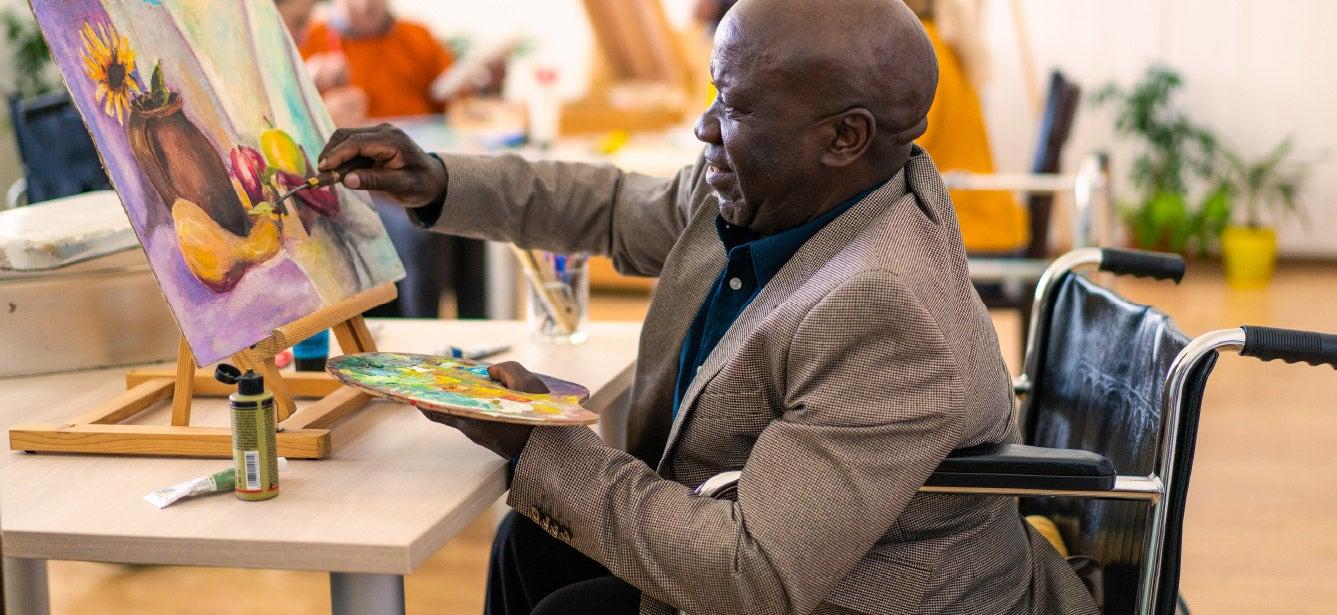Why We Must Address the Rising Mental Health Needs of Our Growing Older Adult Population
4 min read

Related Topics
Coinciding with Older Americans Month and Mental Health Awareness Month and designed to address the rise in mental illness and substance use disorders among older adults, the National Academies of Sciences, Engineering, and Medicine’s (NASEM) Forum on Mental Health and Substance Use Disorders will convene a hybrid in-person and online workshop, May 15-16.
I am honored to serve on the closing panel session focused on mental health advocacy for older adults. This panel discussion, moderated by Michael Friedman, LMSW, Co-founder & Honorary Chair, the Geriatric Mental Health Alliance of NY, will provide an opportunity to discuss policy changes and overcoming barriers to what is necessary to ensure high quality and equitable behavioral health care for all older adults.
My hope is that this NASEM-hosted workshop will:
- Broadly raise awareness about the critical needs of older adults with behavioral health concerns and their caregivers
- Engage providers in scaling evidence-based interventions that have been shown to effectively address physical and mental health care and social needs
- Identify key policy solutions that can further advance quality and equitable behavioral health service delivery
Why is the mental health of older adults such a concern?
Up to 25% percent of adults 65 and older are living with a mental health condition such as anxiety or depression.1 Substance use has been on the rise among older adults for many years. Yet less than half of older adults with mental health and/or substance use problems receive treatment.2,3
Older adults should have access to quality mental health care that respects their agency and supports their family caregivers.
Workshop sessions will take deep dives into a myriad of important topics such as serious mental illness, co-occurrence of dementia and mental illness, integration of physical and behavioral health, Certified Community Behavioral Health Clinics, workforce and rural needs, telehealth, and building community-partnerships.
Specifically, discussions will focus on:
- The incidence and prevalence of mental health and substance use conditions among older adults, as well as the range and availability of services to address those needs
- Strategies to improve the quality, capacity, and access of community-based and institutional mental health services for older adults
- Ways to build and sustain comprehensive programs to support the well-being of older adults with mental health conditions, including dementia
- Current and new approaches to help older people with mental health disorders to live where they prefer in the community and to support their family caregivers
- Knowledge gaps that impede progress in identifying and providing appropriate care for individuals with mental health and substance use conditions, which could be addressed through new research
The May 15-16 workshop also complements the Older Adult Mental Health Awareness Day Symposium, hosted by NCOA with funding from the Administration for Community Living, the Substance Abuse and Mental Health Services Administration, and the Health Resources and Services Administration.
The NASEM event is free and open to the public, and individuals can join in-person at NASEM headquarters in Washington, D.C., or virtually. Register here.
Experts from the fields of geriatrics, mental health, health policy, as well as those serving the needs of diverse older adults will present throughout the two-day conference. The workshop also includes the important perspectives of older adults with personal or lived experience with mental illness and/or substance use disorders.
More mental health resources from NAESM
- Advancing Diagnostic Excellence for Older Adults: Proceedings of a Workshop—In Brief (2022)
- Meeting the Challenge of Caring for Persons Living with Dementia and Their Care Partners and Caregivers: A Way Forward (2021)
- Caring for People with Mental Health and Substance Use Disorders in Primary Care Settings: Proceedings of a Workshop (2020)
- Social Isolation and Loneliness in Older Adults: Opportunities for the Health Care System (2020)
Sources
1. Kaiser Family Foundation. One in Four Older Adults Report Anxiety or Depression Amid the COVID-19 Pandemic. Wyatt Koma, Sarah True, Jeannie Fuglesten Biniek, Juliette Cubanski, Kendal Orgera, and Rachel Garfield. Oct. 9, 2020. Found on the internet at https://www.kff.org/medicare/issue-brief/one-in-four-older-adults-report-anxiety-or-depression-amid-the-covid-19-pandemic/
2. Substance Abuse and Mental Health Services Administration. Key substance use and mental health indicators in the United States: results from the 2019 National Survey on Drug Use and Health. 2020 Sep (Report No. PEP20–07-01-001). Found on the internet at https://www.samhsa.gov/data/sites/default/files/reports/rpt29393/2019NSDUHFFRPDFWHTML/2019NSDUHFFR1PDFW090120.pdf
3. The Mental Health and Substance Use Workforce for Older Adults: In Whose Hands? Jill Eden, Katie Maslow, Mai Le, and Dan Blazer, Editors; Committee on the Mental Health Workforce for Geriatric Populations; Board on Health Care Services; Institute of Medicine. National Academies of Science, 2012. Found on the internet at https://www.aagponline.org/clientuploads/IOM%20July%202012%20Report%20Full.pdf


